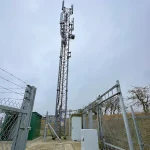Sponsored Links
UPD BT and TalkTalks Request for Appeal against UK Digital Economy Act Rejected
Posted: 22nd Jun, 2011 By: MarkJ

 The Court of Appeal has thrown out an attempt by two of the country's largest broadband providers, TalkTalk and BT Group, to challenge an earlier rejection of their Judicial Review against the controversial Digital Economy Act (DEA).
The Court of Appeal has thrown out an attempt by two of the country's largest broadband providers, TalkTalk and BT Group, to challenge an earlier rejection of their Judicial Review against the controversial Digital Economy Act (DEA).A Government Spokesperson said (V3):
"We welcome the judge's decision and the court's recognition that measures in the Digital Economy Act are both lawful and proportionate. The government remains committed to tackling online piracy and so will set out the next steps for implementation of the Digital Economy Act shortly."
"We welcome the judge's decision and the court's recognition that measures in the Digital Economy Act are both lawful and proportionate. The government remains committed to tackling online piracy and so will set out the next steps for implementation of the Digital Economy Act shortly."
The original JR was won last year but, when the time came to pass judgement (April 2011), the Royal Courts of Justice rejected the majority of their case against the act. Back then the Judge (Mr Justice Parker) dismissed all but one (Draft Costs Order) of the five grounds (challenges) to the Act (here).
The Five Judicial Review GroundsBoth ISPs are now "considering our position" and whether or not to take their fight into the European Courts. This seems like a distinct possibility as most of the remaining grounds deal with the acts compatibility with EU law, or lack thereof.
• Compliance with Technical Standards Directive (which says there was a need to notify Europe in advance of the legislation);
• Compatibility with privacy directives;
• Compatibility with e-commerce directives;
• Whether the obligations are proportionate;
• Additional issue of potential incompatibility with the Authorisation Directive which is part of EU law governing the regulation of communication providers including ISPs.
Tony Ballard, a Digital Media Specialist at Law Firm Harbottle & Lewis, said:
"If it really marks the end of the litigation, its significance lies in Ofcom being able now to implement the procedure for discouraging peer-to-peer file sharing under the Digital Economy Act without the cloud of uncertainty as to the validity of the Act hanging over it. Opinion in the industry remains divided, however, as to whether the procedure is a good idea or not."
"If it really marks the end of the litigation, its significance lies in Ofcom being able now to implement the procedure for discouraging peer-to-peer file sharing under the Digital Economy Act without the cloud of uncertainty as to the validity of the Act hanging over it. Opinion in the industry remains divided, however, as to whether the procedure is a good idea or not."
The DEA itself threatens to identify "suspected" internet copyright infringers (pirates), although some fear that the use of weak evidence could also result in innocent broadband customers being unfairly penalised or possibly even disconnected ("suspended") from their ISP (e.g. The United Nations Human Rights Council).
UPDATE 8:36am
Added a comment from Law Firm Harbottle & Lewis.
Search ISP News
Search ISP Listings
Search ISP Reviews
Latest UK ISP News








Cheap BIG ISPs for 100Mbps+
150,000+ Customers | View More ISPs
Cheapest ISPs for 100Mbps+
Modest Availability | View More ISPs
Latest UK ISP News
Helpful ISP Guides and Tips
Sponsored Links
The Top 15 Category Tags
- FTTP (6800)
- BT (3881)
- Politics (3075)
- Business (2767)
- Openreach (2663)
- Building Digital UK (2512)
- Mobile Broadband (2475)
- FTTC (2142)
- Statistics (2128)
- 4G (2092)
- Virgin Media (2024)
- Ofcom Regulation (1779)
- 5G (1732)
- Fibre Optic (1604)
- Wireless Internet (1595)
Sponsored
Copyright © 1999 to Present - ISPreview.co.uk - All Rights Reserved - Terms , Privacy and Cookie Policy , Links , Website Rules






























